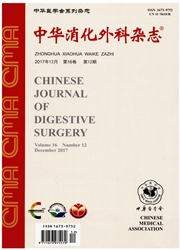

 中文摘要:
中文摘要:
目的探讨腹腔镜手术患者的应对方式相关因素和应对方式与术后康复的相关性。方法采用医学应对问卷(medical coping modes questionnaire,MCMQ)对296例腹腔镜手术患者进行调查。结果单因素分析显示:性别、年龄、文化程度、婚姻家庭状况和收入生活水平均与应对方式相关。男性、文化程度高、已婚且配偶健在、城市户口多采取面对方式应对;单身、农村户口更多采取回避方式应对;年龄〉50岁、单身、低收入者多采取屈服方式应对;术后首次肛门排气、排便时间与面对值呈显著负相关,术后首次下床活动时间和排便时间与屈服分值呈显著正相关。结论腹腔镜手术患者应对方式与个体因素相关性较大,而应对方式对手术预后存在显著影响,因此护理人员应对针对患者实际情况予以心理支持,引导患者采用更为积极的应对方式,改善预后。
 英文摘要:
英文摘要:
Objective To study the coping mode, related factors and their correlation with postoperative rehabilitation of patients undergoing laparoscopic surgery. Methods A total of 296 patients that undergoing laparoscopic surgery were investigated by filling out the medical copying mode questionnaire(MCMQ). Results One-factor analysis of variance showed that patients of males, with higher education background, married, living in urban areas most likely took facing copying mode; patients of single and living in rural areas most likely took avoiding coping mode; patients of over 50 years old, single, with low family income most likely took give-in copying mode. There were negative correlations between the first of venting, defecation and facing score. There were positive correlations between the first time of offbed exercises, defecation and give-in score. Conclusion Copying mode of patients undergoing laparoscopic surgery is influenced by individual factors. The rehabiliation can be significantly influence by copying mode. That means nurse should guide patients to adopt facing copying mode to improve their rehabilitation.
 同期刊论文项目
同期刊论文项目
 同项目期刊论文
同项目期刊论文
 期刊信息
期刊信息
